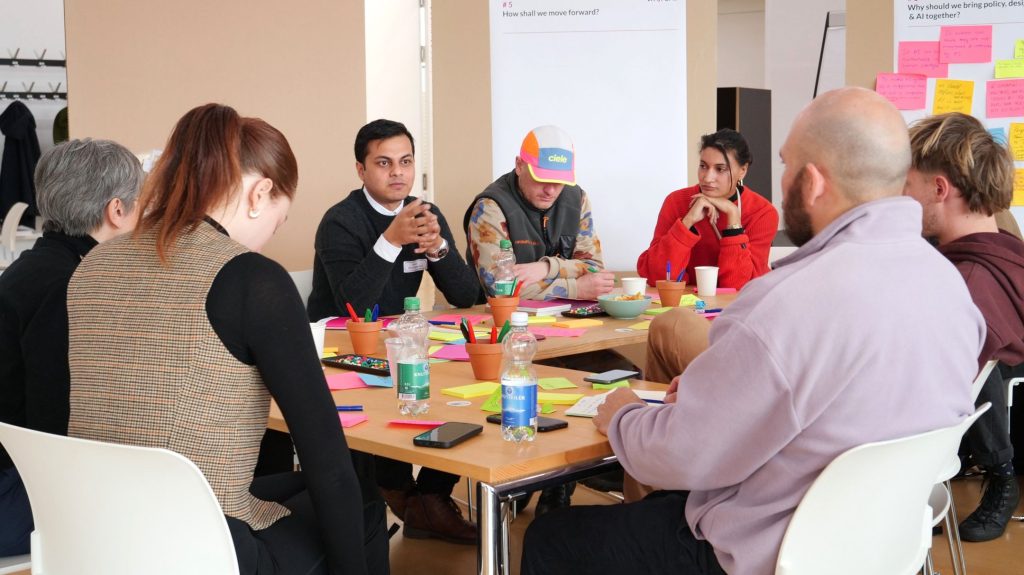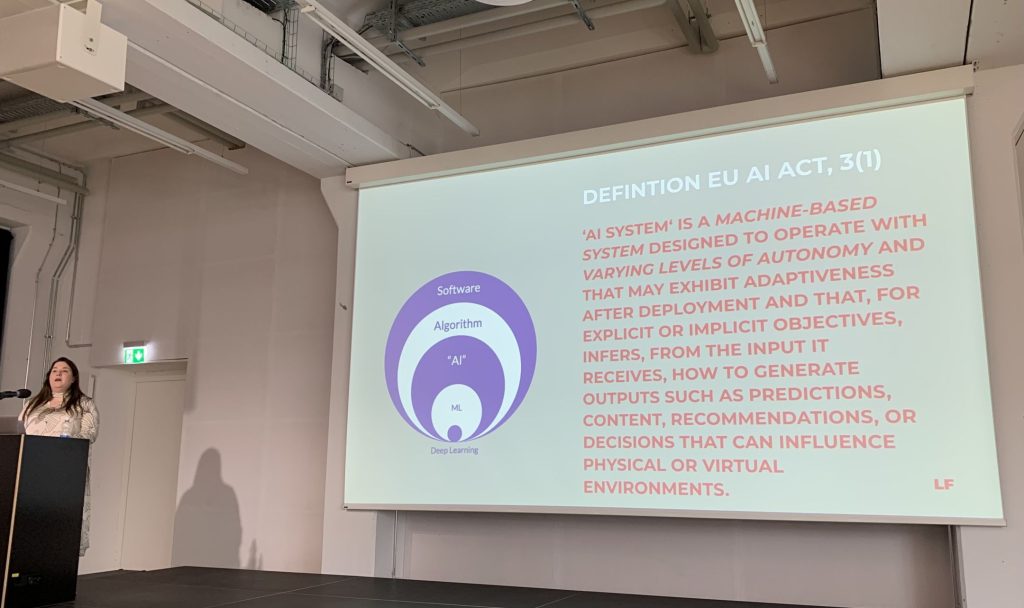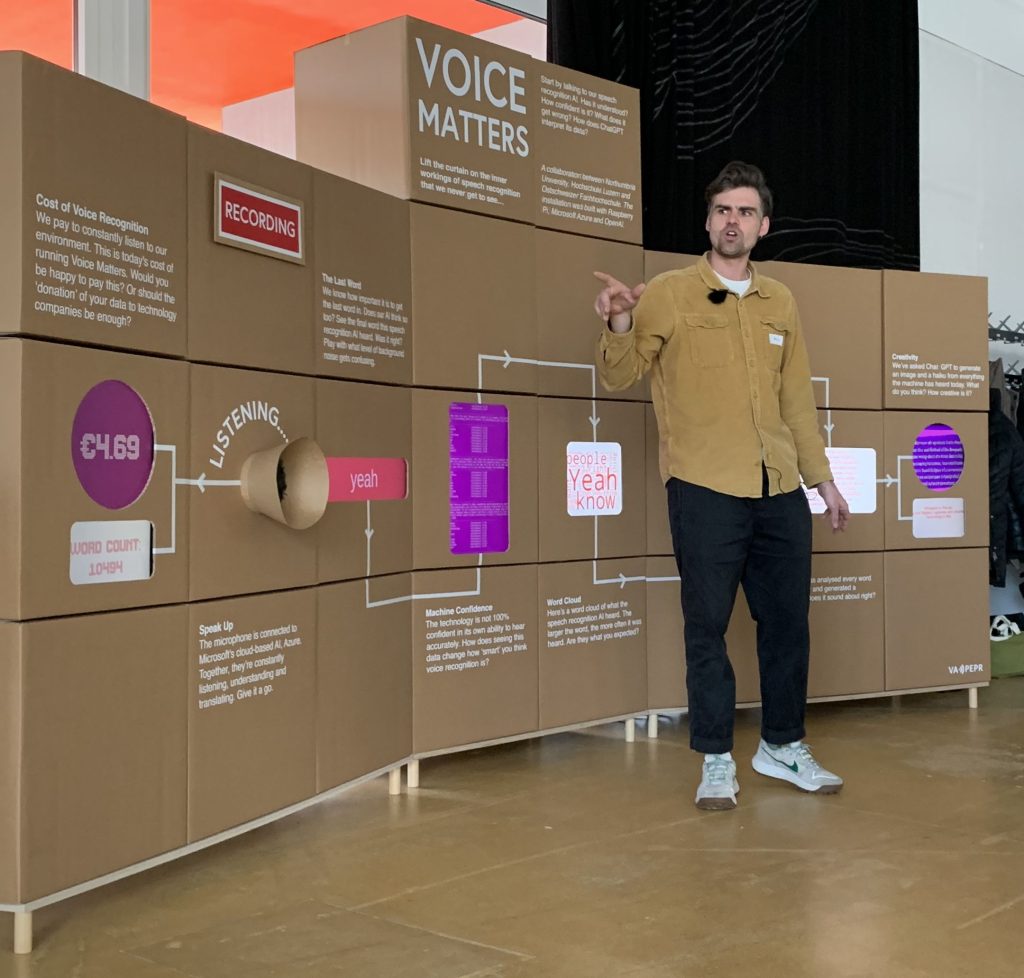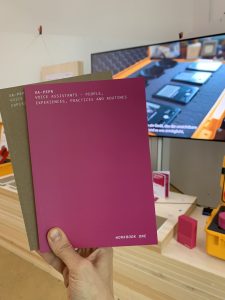VA-PEPR Project Concludes with ‘Talking AI’
Unveiling the Potential of Artificial Intelligence
The VA-PEPR project team successfully hosted the two-day Talking AI event and shared insights from their research on voice technologies. The event was open to anyone interested in how these technologies are shaping our future. Many international experts joined the events contributing to the academic workshops and discussions.
Artificial Intelligence (AI) has become an integral part of our lives, revolutionizing the way we live, work, and interact. To delve into the ever-evolving world of AI, VA-PEPR project team organized the Talking AI event. This two-day international gathering provided a platform for experts, researchers, and industry professionals to explore the capabilities, challenges, and opportunities presented by AI.
Workshops and Engaging Discussions
The Talking AI event kicked off with a series of workshops that covered diverse topics such as policy, design, data privacy, and more. Participants had the opportunity to immerse themselves in thought-provoking discussions conducted in both English and German. These workshops facilitated knowledge exchange, allowing attendees to gain insights into the latest developments in AI and its impact on society.
Presentations and Keynote

One of the highlights of the event was the presentation of the VA-PEPR Research Project, which focused on the project methods and the research outcomes, such as the impact of voice assistants on people’s everyday lives, their practices, and routines in the Swiss context. Attendees learned from the experiences of individuals participated in the in-home studies with this technology. The presentation shed light on the ethical considerations related to voice assistants and AI and sparked conversations on how we can shape our future in harmony with technological advancements.
The keynote speech by Lajla Fetic, a Tech Governance and Digital Policy Expert, explored the role of governance and design in the digital age. Her insightful talk highlighted the importance of responsible AI implementation and emphasized inclusivity in designing AI systems for the future.
Panel Discussion
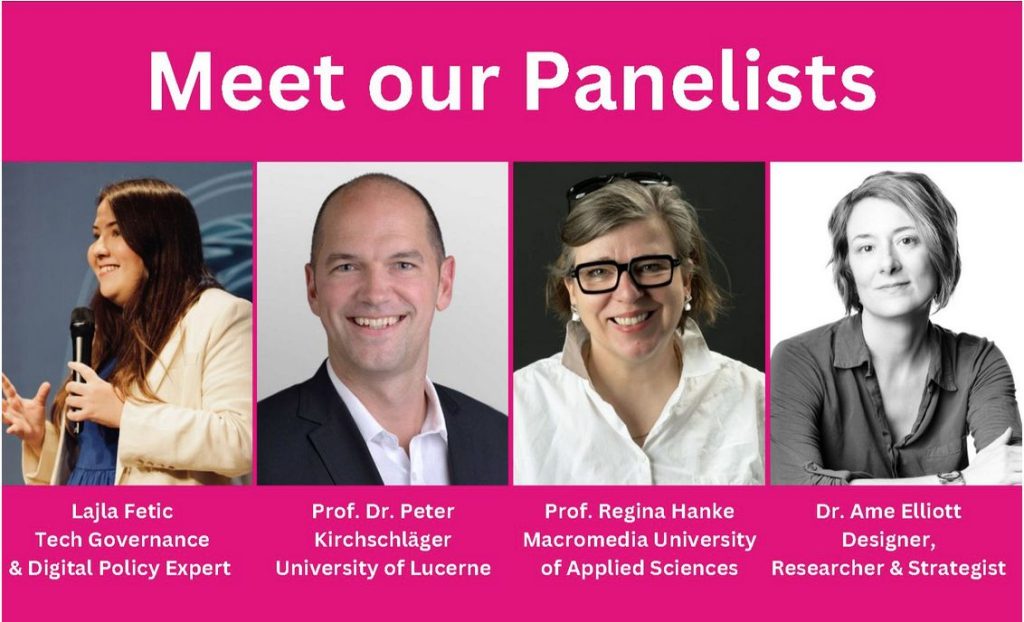
The Talking AI event featured a captivating panel discussion on the outlook of AI, moderated by Prof. Dr. Sabine Junginger. The panel brought together esteemed experts from various fields, such as tech governance, academia, and design. They engaged in thought-provoking conversations on the future of AI, its impact on society, and the ethical considerations surrounding its implementation. The panel discussion provided attendees with a comprehensive understanding of the challenges and opportunities that lie ahead.
Interactive Exhibition and Networking

The event also featured an interactive exhibition which showcased the provotypes (provocative prototypes) developed throughout the project and the Voice Matter installation, offering a glimpse into the potential future of AI. It provided a unique opportunity for participants to debate about and speculate our futures with these technologies, connect with like-minded individuals and exchange ideas on AI-related topics.
The Talking AI event provided a platform for experts, researchers, and industry professionals to explore the vast potential of AI. Through workshops, presentations, keynotes, and panel discussions, attendees gained valuable insights into the latest advancements, challenges, and ethical considerations in the field of AI. The event fostered collaboration, knowledge exchange, and networking, setting the stage for a future where AI positively impacts our lives and society as a whole.
For the results of the VA-PEPR project and access to academic publications, the team invites you to visit the project website. Furthermore, the project team has published two comprehensive workbooks that provide an in-depth overview of the entire project. These workbooks offer a top-level understanding of the project while also delving into granular details. They effectively showcase the collaboration of researchers from diverse backgrounds who contributed to the project’s success.
VA-PEPR Workbook One
VA-PEPR Workbook Two


